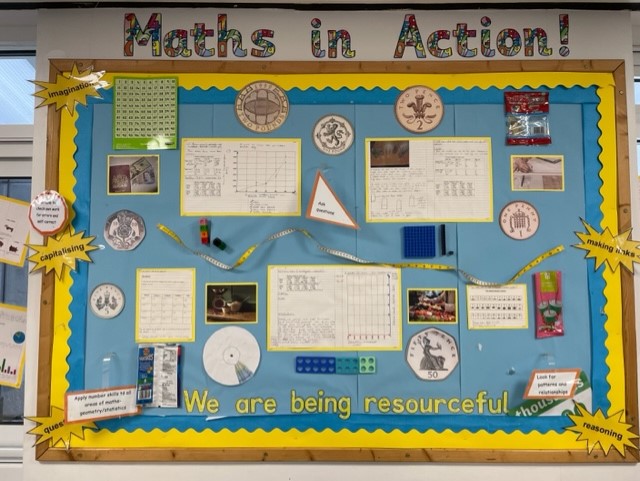Maths
 Subject Intent
Subject Intent
Here at Skegby Junior Academy, we believe that Maths is the foundation for understanding the world and we want our children to know the purpose behind their learning and to apply their knowledge to their everyday lives. Therefore, mathematics forms an integral part of our broad and balanced curriculum, taught throughout a variety of subject areas, where we endeavour to ensure that children develop an enjoyment and enthusiasm for maths that will stay with them throughout their lives and empower them in future life. With this is mind, the intent of Mathematics at Skegby Junior Academy is to develop an ability to solve problems, to reason, to think logically and to work systematically and accurately. We value a maths curriculum that is creative and engaging, enabling all children to experience hands-on learning when discovering new mathematical topics, and allowing them to have clear models and images to aid their understanding. All children are challenged and encouraged to excel in Maths. Arithmetic and basic maths skills are practised daily and the different areas of learning are revisited throughout the year, to ensure key mathematical concepts are embedded and children can recall this information to see the links between topics in Maths.
National Curriculum Aims for Mathematics
The national curriculum for mathematics aims to ensure that all pupils:
- become fluent in the fundamentals of mathematics, including through varied and frequent practice with increasingly complex problems over time, so that pupils develop conceptual understanding and the ability to recall and apply knowledge rapidly and accurately.
- reason mathematically by following a line of enquiry, conjecturing relationships and generalisations, and developing an argument, justification or proof using mathematical language.
- can solve problems by applying their mathematics to a variety of routine and nonroutine problems with increasing sophistication, including breaking down problems into a series of simpler steps and persevering in seeking solutions.
Subject Implementation
At Skegby Junior Academy we embrace the Mastery approach to teaching mathematics. Our teachers will ensure that mathematical skills are taught every day; their planning is supported by White Rose Maths, PiXL and Third Space Learning. They also use cross curricular opportunities to develop pupils’ mathematical fluency and show understanding of how maths is used in the wider world. Our pupils understand the importance of mathematics, are encouraged to be confident in numeracy and to apply the skills that they learn to problem solving. The activities cover a wide range of mathematical knowledge, many with an emphasis on practical work.
Whilst Mathematics is taught through daily stand-alone lessons, we also want to ensure there are opportunities to apply mathematics in different contexts, including through our Forest school and in our continued provision (additional study and challenge areas, as well as Purple Pounds in Y6). We teach a learning challenge curriculum which promotes a love of learning and teaches children to become independent learners with enquiring minds. As part of this, Maths is also taught through Geography, Science, History, PE and the Arts. Each lesson is encouraged to be taught over two days to ensure that fluency and reasoning has been consolidated and misconceptions are addressed within the lesson. In each lesson, children complete a daily assessment, practise a taught skill, use their skills to problem solve and take part in a reasoning activity. There is also a short, daily ‘fluent in 5’ session to develop mental maths skills and address gaps from previous areas that have been taught. We build on skills and understanding in a step by step and progressive way and continue to develop place value, the four number operations and the understanding of fractional parts. Throughout the year, we revisit areas of the curriculum to ensure children have retained what has been previously taught and they can apply the skills in different settings. There is a clear calculations policy to support children to learn the different methods of the four operations. The intention is to support each child to move towards standard written methods (as set out in the policy) as soon as they are ready rather than when in a specific year group. There are extra activities throughout the year to promote mathematical skills and thinking including participation in Numbers Day and My Money Week.
National Curriculum Mathematics Programmes of Study:
